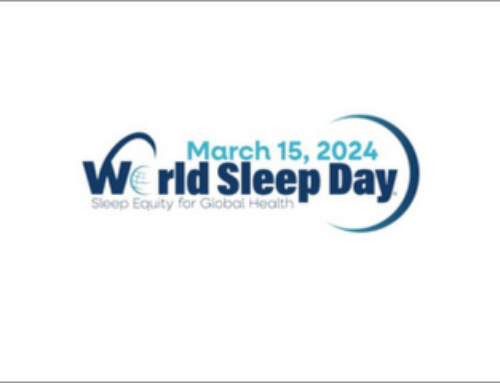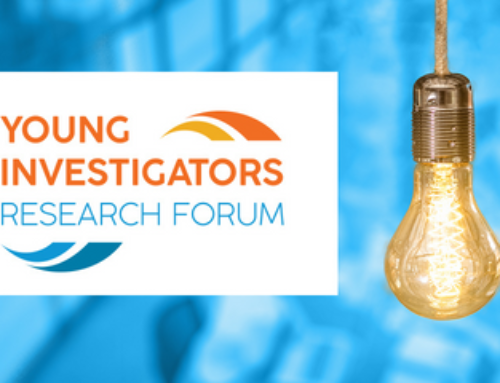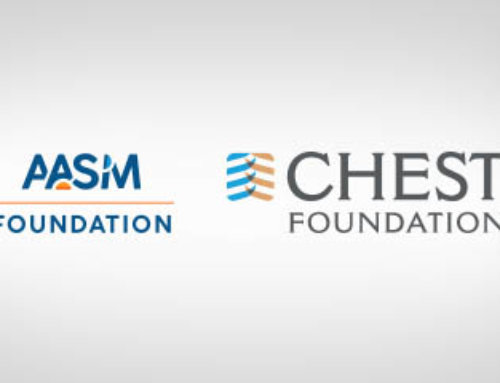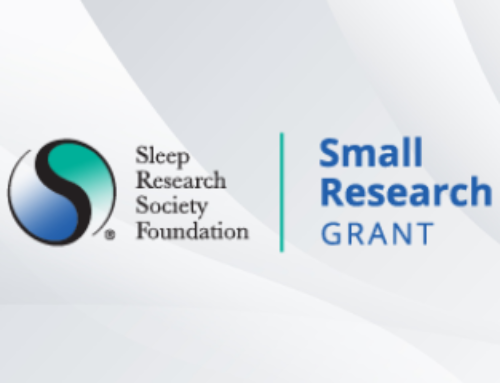The AASM Foundation is dedicated to developing the careers of sleep and circadian investigators by increasing support for sleep and circadian investigators at various stages of their careers. In 2021, the AASM Foundation awarded more than half a million dollars to support projects which will study a range of sleep disorders and bolster the careers of sleep researchers.
Bridge to Success Grant for Early Career Investigators
 Arvind Chandrakantan, MD, MBA
Arvind Chandrakantan, MD, MBA
Baylor College of Medicine
Pediatric Obstructive Sleep Apnea and Surgical Timing – A Hypothesis Translational Model
About the Project
This project will be using a preclinical murine model to understand the neurocognitive sequelae of pediatric obstructive sleep apnea (OSA). The project team is using a top-down approach involving neurobehavior, synaptic staining and quantification, and piezoelectric field placement to help drill down which area of the brain to focus on in understanding deficits in humans. By using a preclinical model, the team hopes to be able to provide better answers for OSA in children with neurocognitive disorders.
Project Impact on Career
Data obtained from this project will help Dr. Chandrakantan obtain a career development award with the intent of maintaining funding through a dedicated research career. His long-term goal is to be a physician-scientist with bench-to-bedside translational skills, while running a laboratory focusing on mechanisms of pediatric OSA.
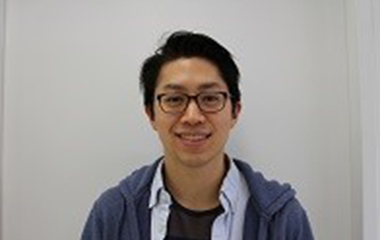 Korey Kam, PhD
Korey Kam, PhD
Icahn School of Medicine at Mount Sinai
Pilot Study of Locus Coeruleus Neuroimaging with Sleep and Alzheimer’s Disease Biomarkers
About the Project
In this project, the team is applying non-invasive ultra-high field 7T MRI to identify the locus coeruleus (LC) in cognitively normal elderly. This brain structure contributes to the sleep/wake cycle, memory processing and is also susceptible to early Alzheimer’s Disease (AD) pathology. The aim of this work is to assess the feasibility of this novel neuroimaging technique in older individuals with known sleep fragmentation/obstructive sleep apnea.
Project Impact on Career
Dr. Kam will receive mentored training in novel imaging techniques in order to acquire preliminary data for a larger study to characterize LC function in the elderly in vivo for the first time, better understand LC susceptibility to early tau accumulation, and characterize its functional impact on sleep; all of which advance his career goal of becoming an independent investigator.
Bridge to Success Grant for Mid-Career/Senior Investigators
 Reena Mehra, MD, MS
Reena Mehra, MD, MS
Cleveland Clinic Foundation
Sleep Apnea and Influence of Obesity across the Atrial Fibrillation Trajectory
About the Project
Despite experimental and epidemiologic data implicating sleep-disordered breathing (SDB) as a clinically novel atrial fibrillation (AF) trigger, the interplay of SDB and obesity across the AF continuum remains a critical knowledge gap. The project proposes to identify SDB, obesity and metabolic determinants across AF subtypes by examining paroxysmal, persistent and longstanding persistent AF groups and matched controls with collection of innovative, state-of-the art cardiac imaging of visceral adiposity and proteomics profiles.
Project Impact on Career
The AASM Foundation Bridge to Success Grant for Mid-Career/Senior Investigators will be instrumental to extend Dr. Mehra’s current line of investigation and will facilitate her career trajectory by providing support during which timely key preliminary data can be generated to set the stage to garner extramural funding.
Focused Projects Grant for Junior Investigators
 Ashley Curtis, PhD
Ashley Curtis, PhD
University of Missouri-Columbia
Sleep-related Attention Bias in Older Adults: Impact of Insomnia Symptoms and Sex
About the Project
Increased attention to sleep-related stimuli, or “sleep-related attentional bias” is common in insomnia. However, sleep and sex-specific mechanisms underlying this phenomenon are poorly understood. In this study, the project team will compare visual vs. auditory-related attentional bias, evaluate the contributions of self-reported, actigraphy and polysomnographic sleep to these biases, and examine differences between men and women. Findings may identify sex-specific targets for behavioral insomnia intervention such as cognitive behavioral therapy or stimulus desensitization.
Project Impact on Career
Dr. Curtis’ funding from the AASM Foundation will support her early career in cognitive aging and sleep research, provide critical preliminary data for future larger federal grant applications, as well as inform the future design of modified digital clinical interventions for insomnia.
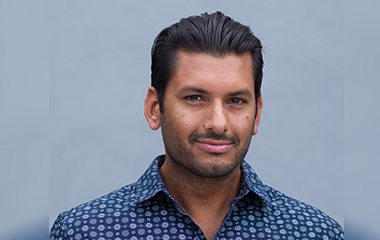 Daniel S. Joyce, PhD
Daniel S. Joyce, PhD
University of Nevada, Reno
Imaging the Living Human Retina to Measure Circadian Sensitivity
About the Project
Circadian clocks in the retina oscillate independently and modulate entraining signals to the central circadian pacemaker. The phase and amplitude relations between the retinal and central pacemaker have not been defined in humans, while breakdowns of these relations may underlie circadian disease. Dr. Joyce will evaluate this hypothesis by probing and imaging how living human photoreceptors vary in sensitivity across 24-h timescales in participants who are healthy, have sleep phase disorders, or have shiftwork disorder.
Project Impact on Career
This grant will allow Dr. Joyce to train in cutting-edge techniques, improve his mentorship skills by supporting a graduate research assistant on this project, and fund his attendance at sleep/circadian conferences to enhance his collaborative networks.
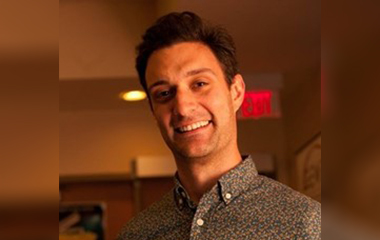 Daniel Vena, PhD
Daniel Vena, PhD
Brigham and Women’s Hospital and Harvard Medical School
A Closer Look at the Effect of Oral Appliance Therapy on Blood Pressure in Sleep Apnea
About the Project
The proposed research investigates the effect of oral appliance therapy on blood pressure in OSA. Past studies on this topic show modest-to-no effect. The project team believes the source of this inconsistency is imprecise characterization of the physiological consequences of OSA, such as hypoxia or sympathetic surges. The proposed research applies two advanced metrics to identify OSA patients at risk for cardiovascular disease and investigate the effect of oral appliances on blood pressure in this group.
Project Impact on Career
The current grant funds an observational trial investigating the effect of oral appliance therapy on blood pressure. The findings will provide strong preliminary data for a larger project grant to study these same aims in a randomized controlled trial. This grant will be an important part in establishing research independence for Dr. Vena.
Focused Projects Grant for Junior Investigators: National Sleep Research Resource
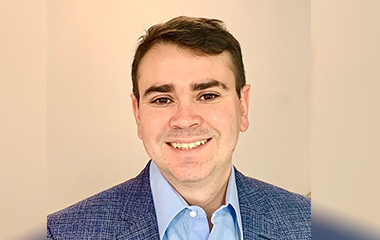 Gonzalo Labarca Trucios, MD
Gonzalo Labarca Trucios, MD
Brigham and Women’s Hospital and Harvard Medical School
Association between the Sleep Apnea Specific Hypoxic Burden (SASHB) with Incident Neurocognitive Impairment
About the Project
OSA is a common condition associated with neurocognitive impairment. This study aims to determine if the sleep apnea-specific hypoxic burden can identify individuals with OSA that have an increased risk of prevalent and incident neurocognitive impairment in two community-based cohorts, available in the National Sleep Research Resource. The expected results will provide additional information for clinicians who attend patients with OSA by incorporating this measure in the precision-medicine approach.
Project Impact on Career
The funding from AASM Foundation will allow Dr. Labarca Trucios to focus on neurocognitive outcomes of sleep apnea to improve diagnosis and management of sleep apnea and neurocognitive comorbidities. In addition, at the completion of this grant, he will have the expertise and resources to integrate methods and contents from the fields of respiratory physiology, aging, neurocognition, epidemiology, and data science to conduct future research needed for improving sleep apnea diagnosis and management.
Focused Projects Grant for Junior Investigators: Insomnia Biomarkers
Sponsored by Eisai, Inc.
 Sara Mithani, PhD, RN
Sara Mithani, PhD, RN
University of Texas Health Center San Antonio
Discovery of Plasma Proteomic Biomarkers Relating to Insomnia and its Link to Subjective and Objective Measures of Insomnia
About the Project
This project will use SOMAscan multiplex technology (SomaLogic Inc.) to profile 7,000 proteins in individuals with insomnia and age/gender-matched controls to identify novel insomnia biomarkers and develop multivariate constructs to predict insomnia phenotype based on proteomic profile. The study will deepen the understanding of the underlying biological mechanisms of insomnia and will serve as a basis for a future multisite longitudinal study to validate biomarkers for insomnia.
Project Impact on Career
Dr. Mithani hopes this project will lead to discovery of significantly dysregulated proteins that are associated with the symptoms of insomnia and objective sleep characteristics from polysomnography in patients with insomnia. This funding will support her development as an independent investigator in blood-based biomarkers and sleep disorders with a focus on chronic insomnia disorder. This funding will also provide training for new proficiencies in clinical insomnia, proteomics, and large data analysis.
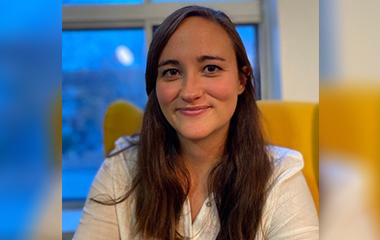 Aurore A. Perrault, PhD
Aurore A. Perrault, PhD
Research Center of the Institut Universitaire de Gériatrie de Montreal
Multivariate Data-driven Approach in Identifying Sleep Profiles of Chronic Insomnia
About the Project
Chronic insomnia has a high degree of heterogeneity, making it difficult to identify a single robust biomarker. This project proposes to use a multidimensional approach in defining chronic insomnia profiles by extracting sleep profiles characterized by a combination of subjective (sleep diaries, questionnaires) and objective (polysomnography) sleep measures using a data-driven approach from datasets of individuals with insomnia. It may explain insomnia in a holistic manner but also lead to personalized therapeutic approaches for chronic insomnia.
Project Impact on Career
The project allows Dr. Perrault to become more competitive for larger grants and enhance her chance to establish herself as an independent investigator. This project on sleep profiling of chronic insomnia will be the first step in a multidimensional exploration of chronic insomnia. This novel line of research leveraging a data-driven approach will encourage further research investigations aimed at better delineating distinct insomnia phenotypes with complementary non-sleep characteristics, which will ultimately inform tailored therapeutic interventions.


